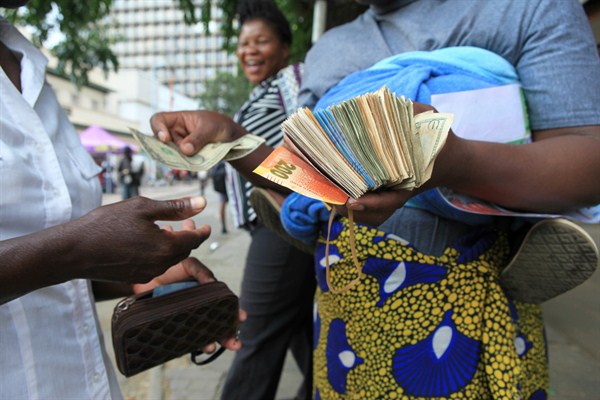Zimbabwe is quickly moving toward becoming a cashless society as the country runs out of U.S. dollars, which the country has used as its currency since 2009. To counter the cash crisis, the government plans to introduce bond notes that will be exchangeable with the U.S. dollar, but many Zimbabweans suspect the government of trying to reintroduce a local currency. In an email interview, Knox Chitiyo, as associate fellow at Chatham House, discusses Zimbabwe’s cash crisis.
WPR: How severe is Zimbabwe’s cash crisis, what factors have contributed to it, and what impact is it having?
Knox Chitiyo: Zimbabwe’s current cash crisis is one of the most severe financial challenges in the country’s history. There is very little cash, official or otherwise, in the system, and every Zimbabwean is feeling the effects of what is now quickly and involuntarily becoming a near-cashless economy. There is no single reason for the liquidity crisis; various factors have come together to create a perfect storm. Although the formal dollarization and jettisoning of the Zimbabwean dollar by the Zimbabwe Government of National Unity in 2009 brought an immediate economic stimulus and stabilized a collapsing economy, it proved costly.

